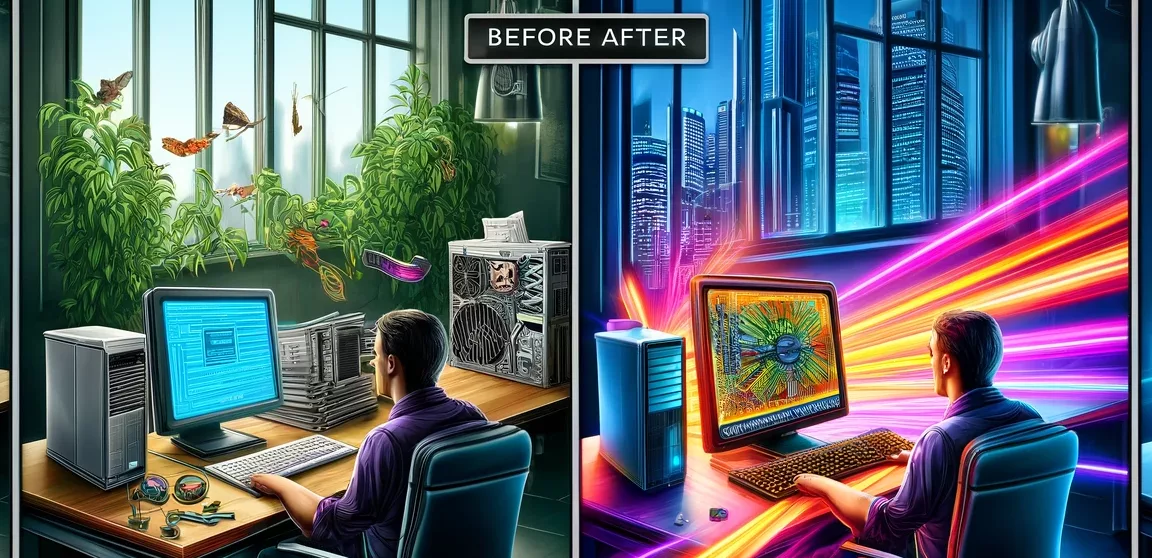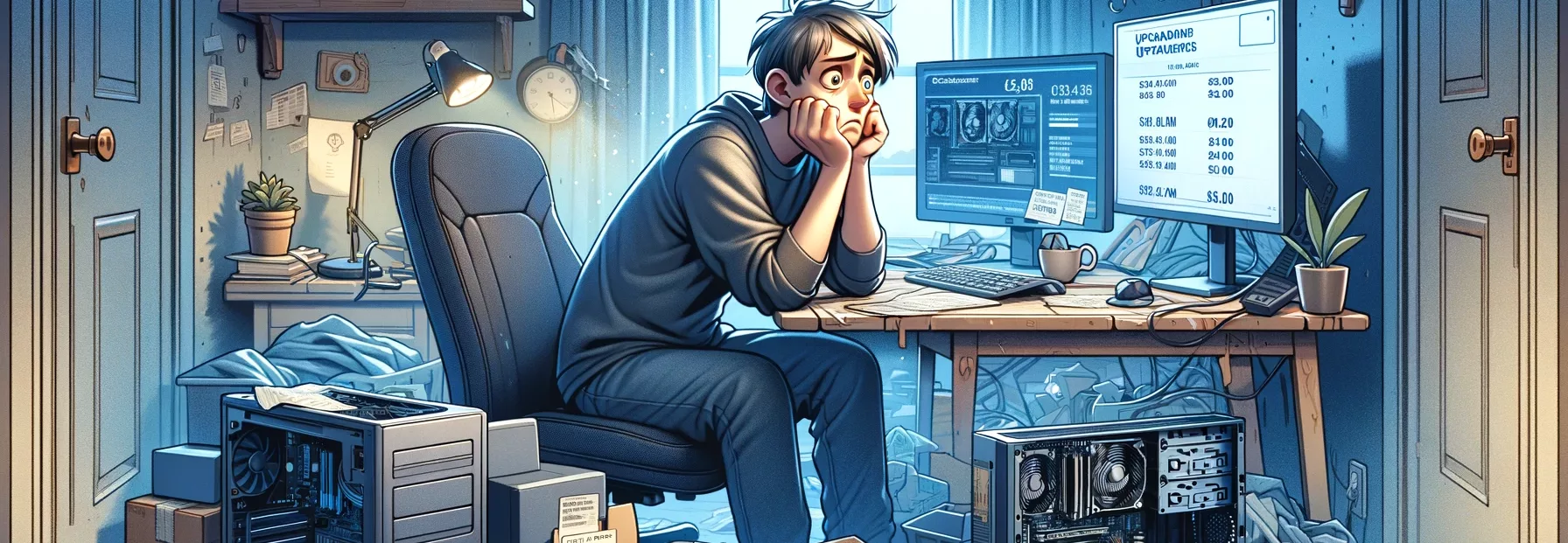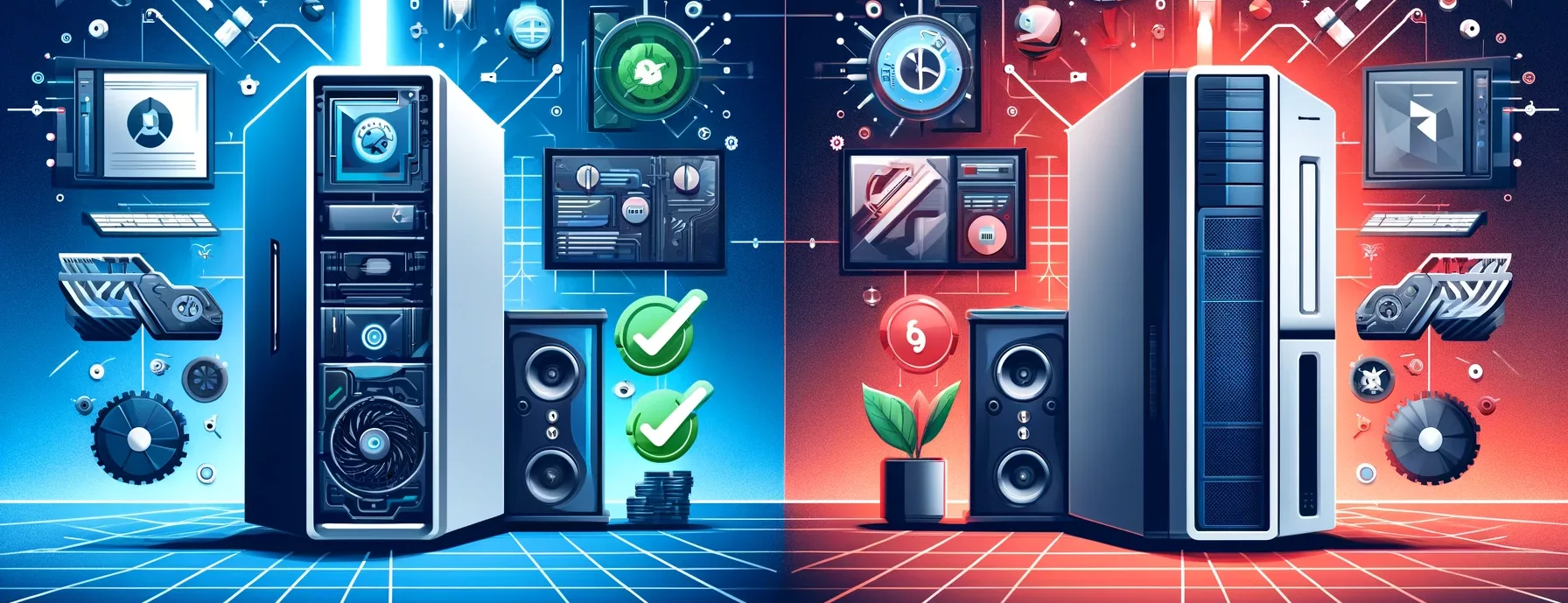Technology is evolving at a rapid pace, and it’s not uncommon for our once cutting-edge computers to start feeling outdated sooner than we’d like. With new software demanding more resources and hardware becoming more advanced, the question of whether to upgrade our computers often lingers in the back of our minds. In this blog post, we’ll delve into the pros and cons of upgrading your computer to help you make an informed decision.

The Pros of Upgrading Your Computer
1. Improved Performance
One of the most obvious benefits of upgrading your computer is the potential for improved performance. Whether you’re a casual user browsing the web or a power user running resource-intensive applications, upgrading your hardware can lead to faster speeds, quicker load times, and overall smoother operation.
2. Extended Lifespan
By upgrading your computer, you can breathe new life into an aging system. Instead of shelling out money for a brand new computer, a few hardware upgrades can help extend the lifespan of your current machine, saving you money in the long run.
3. Access to New Features
New hardware often comes with new features and capabilities that may enhance your computing experience. Whether it’s faster data transfer speeds, improved graphics capabilities, or enhanced security features, upgrading your computer can give you access to the latest advancements in technology.
4. Increased Storage and Memory
As software and files continue to grow in size, having ample storage and memory is crucial. Upgrading your computer allows you to increase your storage capacity and memory, ensuring that you have enough space to store your files and run your applications smoothly.

The Cons of Upgrading Your Computer
1. Cost
Perhaps the most significant drawback of upgrading your computer is the cost involved. Depending on the upgrades you’re considering, the price tag can add up quickly. From purchasing new components to paying for labor if you’re not comfortable installing them yourself, upgrading your computer can be a substantial financial investment.
2. Compatibility Issues
Upgrading your computer’s hardware isn’t always a straightforward process. Ensuring that the new components you’re installing are compatible with your existing system can be a challenge, especially if you’re not well-versed in computer hardware. Incompatibility issues can lead to frustration and potentially render your system unusable.
3. Diminishing Returns
In some cases, upgrading your computer may not yield the performance improvements you were hoping for. If your system is already several years old, the bottleneck may be in other components that upgrading won’t address. In such instances, investing in a new computer may be a more cost-effective solution in the long term.
4. Time and Effort
Upgrading your computer isn’t a task to be taken lightly. It requires time, effort, and a certain level of technical expertise. From researching compatible components to physically installing them and troubleshooting any issues that arise, upgrading your computer can be a time-consuming process that some users may find daunting.
The Bottom Line
In conclusion, the decision to upgrade your computer ultimately boils down to your individual needs and circumstances. If your current system is struggling to keep up with your demands and you have the budget to invest in upgrades, the potential performance improvements and extended lifespan may outweigh the costs and challenges involved. However, if your computer is severely outdated or the upgrades you’re considering won’t address your specific needs, it may be more prudent to start fresh with a new system. Remember to weigh the pros and cons carefully and consider consulting with a professional if you’re unsure about the best course of action. Ultimately, the goal is to have a computer that meets your needs efficiently and effectively in the digital age.

